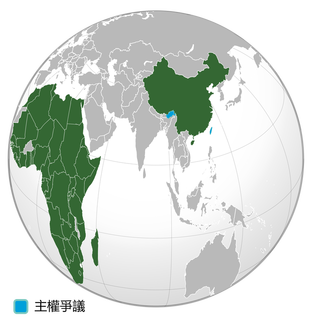 A recent three-day dialogue between Chinese and African stakeholders has identified a number of actions to improve the business relationship between China and its African trading partners. “The three-day meeting was an intense and valuable process that identified some clear action points for the major role-players, with the aim of improving this important relationship to the benefit of both parties,” says Professor Deon Rossouw, CEO of the Ethics Institute of South Africa (EthicsSA), who hosted the Dialogue. China and Africa must share responsibility for ensuring mutual economic growth Overall, the dialogue concluded that both business and government, Chinese and African, shared responsibility for ensuring that China’s business presence in Africa was not just one focused on extracting raw materials, but one that stimulates African economic development as well. Public sector must create and enforce framework for investors When it comes to the government arena, delegates were clear that African governments have a responsibility to create and enforce a clear framework for foreign investors. In countries where such frameworks do exist and are enforced, relationships between Africans and Chinese businesses are noticeably better. The Chinese government also had a role to play by setting clear standards for Chinese companies working overseas. There has been some talk of introducing a corporate responsibility rating system which, Professor Rossouw believes, could make a positive contribution. In addition, if the Chinese government engaged with African civil society organisations, especially in relation to aid, it could materially improve the image of Chinese business on the continent. Private sector must be good corporate citizens Delegates agreed that Chinese businesses needed to build closer relationships with their host communities by acting as good corporate citizens. By taking their social and environmental responsibilities seriously, they would be positioned to break down the isolation in which many of them operate. “In particular, by working more closely with local businesses, Chinese companies could build cultural understanding and create more opportunities for everybody,” remarks Professor Rossouw. “One of the big gripes about Chinese businesses is that they often import all their own labour, and thus deny African citizens and businesses the opportunity to participate in massive infrastructure projects.” An issue that was raised for further discussion was how to reach informal Chinese traders who are operating in Africa without the assistance or sanction of the Chinese government, and often under the radar of their host countries as well. Civil society organisations must act as watchdogs Delegates felt that civil society organisations could continue to play an important role as watchdogs by undertaking in-depth studies of the impact of Chinese business in Africa. It was also felt that, by working together, African and Chinese civil society organisations could help build bridges between Chinese businesses and their African host communities. Business schools must focus on business culture training Both Chinese and African business schools have important parts to play. African business schools need to prepare business leaders for working with Chinese businesses, and their Chinese counterparts need to focus on training the next generation of business leaders in ethical leadership. The dialogue was attended seven stakeholders each from Africa and China, representing business, policy-making, government, academia and civil society. The CEO of Globethics, a worldwide ethics network based in Geneva, acted as a neutral facilitator. “All the delegates have committed to developing a detailed set of recommendations and ensuring it gets as much exposure as possible,” Professor Rossouw concludes. “We will also hold a second dialogue in China in 2015 to take the process forward.” Organised by EthicsSA in conjunction with the Centre for International Business Ethics in Beijing, the dialogue is the outcome of research conducted by EthicsSA earlier this year, which found that Africans were generally negative about the impact of Chinese business in their countries. ENDS MEDIA CONTACT: Juanita Vorster, 079 523 8374, [email protected] For more information on EthicsSA please visit: Website: www.ethicssa.org LinkedIn: Ethics Institute of South Africa Facebook: Ethics Institute of South Africa
0 Comments
Leave a Reply. |
Welcome to the newsroom of The Ethics Institute. For media releases prior to August 2014 please click here.
Archives
August 2017
Categories
All
|

 RSS Feed
RSS Feed